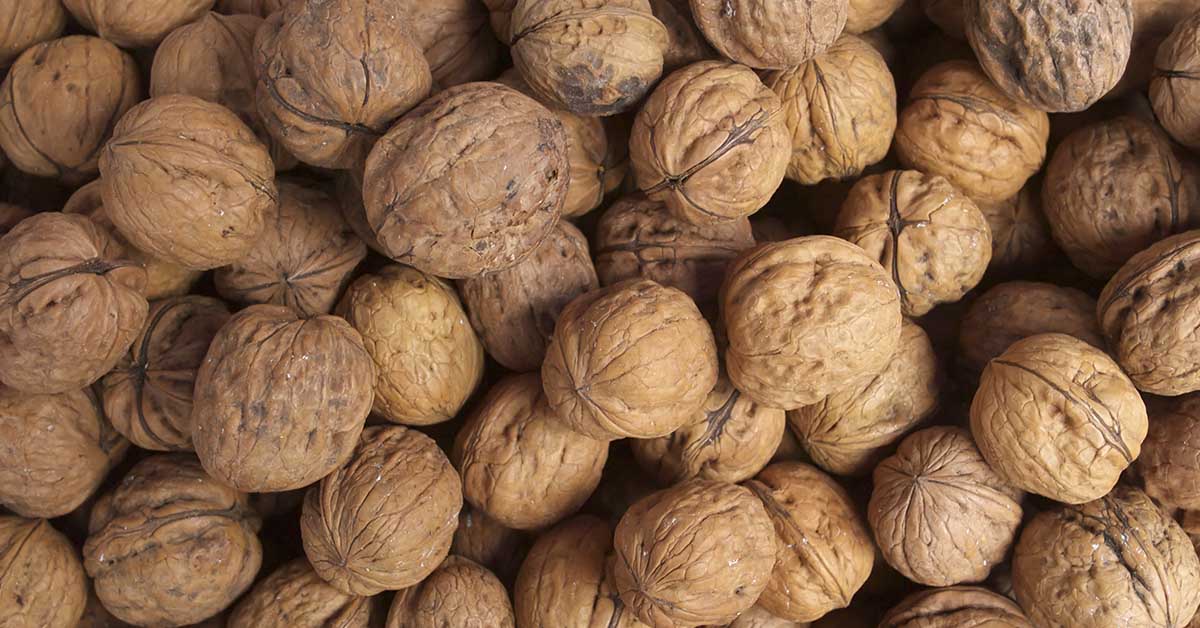Have you ever heard of boiling whole walnuts? If you haven’t, you might be surprised to know that this is a traditional culinary trick passed down for generations. Boiling whole walnuts is an ancient technique that our grandmothers often used to enhance the flavor of walnuts and make them easier to digest. Let’s have a look at this time-tested culinary trick and how it can benefit your health.
Why Boil Whole Walnuts?
Some of you may have grown up watching your grandparents boiling walnuts without really knowing why. Boiling whole walnuts (still in their shells) is a simple yet effective way to soften the shells and remove bitterness. It makes the walnuts taste better and makes them easier to eat. This technique is often used in traditional Chinese, Persian, and Indian cuisine. (1)
In the past, walnuts were boiled in water, salt, and sometimes vinegar. The idea was to soften the shells and remove any bitterness that might be present. This is because walnuts have a high level of tannins, which can give them a bitter taste. Boiling the walnuts can help to reduce the tannin level, making them more palatable.
Boiling whole walnuts enhances their flavor and makes them easier to digest. The softened shells make it easier for the body to break down the nuts and extract the nutrients.
Read: 7 Benefits of Fennel and Fennel Seeds
How to Boil Whole Walnuts?

Boiling whole walnuts is a simple process. All you need to do is:
- Rinse the walnuts in water to remove any dirt and debris.
- Place them in a pot and cover them with water.
- Add a teaspoon of salt to the water for flavor.
- Bring the water to a boil and then reduce the heat to simmer.
- Simmer the walnuts for about 30 minutes or until the shells are soft.
- Drain the walnuts and then rinse them again in cold water.
- Pat the walnuts dry with a clean towel.
Once boiled, you can eat the walnuts on their own or use them in recipes.
Health Benefits of Walnuts
Walnuts are delicious and packed with nutrients that can benefit your health. They are an excellent source of omega-3 fatty acids, which can help to reduce inflammation and improve heart health. They also contain antioxidants that can reduce the risk of chronic diseases. (2)
Studies have shown that walnuts can reduce the risk of heart disease, lower cholesterol, and improve brain function. They can also help to control blood sugar, making them a great snack for people with diabetes.
Other health benefits of walnuts include:
- Having anti-cancer properties.
- Reducing inflammation and improving brain function.
- Improving blood sugar control and preventing diabetes.
- Reducing cholesterol and the risk of heart disease.
- Improving overall health and longevity.
Walnuts are a great option for people who are trying to lose weight or maintain a healthy body weight. One ounce (28 grams) of walnuts contains about 180 calories; this calorie count is higher than other nuts, but it also provides more protein, fiber, iron, and magnesium than most types of nuts.
Try It Yourself
Boiling whole walnuts is a time-tested culinary trick that has been used for generations. It can enhance the flavor of walnuts and make them easier to digest. If you haven’t tried boiled walnuts, give it a try. You are sure to love the delicious and nutty flavor. Plus, you will reap the many health benefits of walnuts, making them a tasty and nutritious snack.
Read: This Barely Eaten Vegetable is a Key Longevity Secret for Okinawans Living in the Blue Zone
Sources
- “Is it safe to boil walnuts?” Eating Expired. Kevin. October 10, 2022
- “The Health Benefits of Walnuts.” Cleveland Clinic. July 21, 2023.

